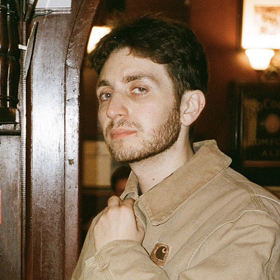When did Broadway become 'Broadway'?
What Is Broadway?
Broadway is a highly esteemed term in the theater industry, often associated with the biggest and most prestigious productions, but what does 'Broadway' actually mean?
When a show is on Broadway, it commonly signifies that it is at the highest standard of theater, with a huge buzz surrounding the production and the cast. More commonly than not, these Broadway shows are musicals or plays, however, the word can encompass varying other special live events and performances. Broadway is more than just a term for indicating the caliber of a show, it is also a word doused in cultural richness and thick with history.
Where does the word 'Broadway' come from?
The word Broadway' comes from the name of a 13-mile street in New York City. Running from Slate Green to Sleepy Hollow, Broadway intercepts famous neighborhoods such as Manhattan and The Bronx.
Before NYC became the gridded network of streets we know today, Native Americans carved this trail as a primarily north-to-south thoroughfare through Manhattan Island. It was only when the Dutch widened the road in the early 17th century (making it broad') that it gained its namesake properties; with the British giving Broadway its iconic name in the late 1600's. Unlike the other streets in New York City, Broadway's deep history can be seen in its lack of abeyance to the iconic grid system, due to predating the Commissioners Plan of 1811.
When Did Broadway Become the Home of NYC Theater?
Theater has been a part of New York since the 1700s, but it wasn't until the 1900s that Broadway became a hub of prestigious performance. During the 1800s, Broadway began developing great transportation connections, saw reductions in poverty, and had an influx of creatives, budding actors, and playwrights. All of these factors led to a huge boom in theater buildings, with plenty of talented writers and performers to fill the stages. Today, many early theaters' built in the 1910s such as the Hudson and New Amsterdam, are still standing and in use.
The first-ever Broadway Show' as we know it today, was The Black Crook'. Premiering in September 1866, this 5-hour show ran for 474 performances. Today, the longest-running show on Broadway is Andrew Lloyd Webber's Phantom of the Opera', boasting an impressive 13,981 performances before it ended in 2023.
What Constitutes a Broadway Show?
To be considered a Broadway show, the production must be at a venue with a seating capacity of 500 or more. As of today, there are a total of 41 official Broadway theaters, each with its unique history and legacy of hosting some of the most groundbreaking and iconic shows in theater history. These theaters have been graced by legendary performers, and continue to draw in audiences from all over the world with their world-class productions and unparalleled stagecraft.
You can find tickets to all our available Broadway shows here.
